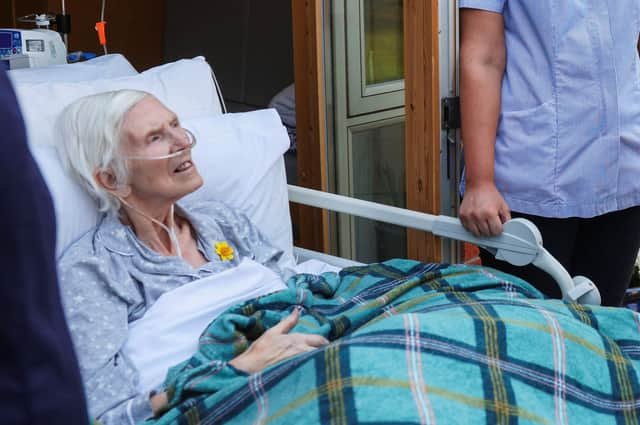Scotland's hospices face cuts unless they can afford to pay staff and soaring energy bills – Miles Briggs


For me personally, I can remember as a child the love and support which the hospice provided to my mum and my whole family when my mum passed following a long battle with breast cancer. Hospices matter and the care and support which they provide, not just to the individual who has a life-limiting illness but the wider family, cannot be underestimated. They are a special and integral part of our health and care system.
This week at the Scottish Parliament, I hosted a roundtable with Scottish hospice representatives, MSPs and campaigners to discuss the critical challenges they are facing. With extreme demand on our NHS, hospices are more important than ever, to look after patients and alleviate pressures on the health service.
Advertisement
Hide AdAdvertisement
Hide AdStaff are highly skilled and support over 22,000 people every year who would otherwise be the responsibility of NHS health boards. They reduce emergency admissions, cut lengths of stay in hospital, and support people to stay at home. The evolution of our health service is towards a care-in-the-community model, which hospices are a crucial part of delivering.
Across Scotland, hospices and the families they support are facing unprecedented pressures. The predicted increase in wage costs is about £12 million – this is to match NHS pay rises and ensure that hospices stay competitive to attract and retain skilled experienced staff. A stable workforce is crucial for ensuring that they do not have to reduce services and close beds, which would have a direct impact on hospitals.
As well as increased staffing costs, hospices have significantly higher running costs as a result of the rise in energy prices. One reported their energy bills had gone up from £25k a year to over £80k. For hospices and people receiving end-of-life care, reducing energy consumption is not an option. They need to keep medical machines running and make sure patients in their care are kept warm.
SNP ministers urgently need to review how hospices are funded. There has been a historic commitment for health boards to fund 50 per cent of child hospice care. However this has reduced in recent years and no such agreement has been in place for adult care. On average, just over a third of hospices’ income comes from statutory sources, with the majority from charitable donations and local fundraising. We are also seeing an increased demand for palliative care and, in a tragic impact of the pandemic, seeing people presenting with late cancer diagnoses and going into palliative care pathways.
Advertisement
Hide AdAdvertisement
Hide AdI believe it is time for the Scottish Government to develop a new partnership with the Scottish hospice sector and for the vital role they play to be maintained through a sustainable new funding model which will enable hospices to plan for the long-term and effectively support health boards to meet palliative care needs.
We will never know when we, a family member or friend will need the care and support of a hospice. What we do know is how much poorer our country would be if they didn’t exist, or weren’t able to go the extra mile.
Miles Briggs is a Scottish Conservative MSP for Lothian
Comment Guidelines
National World encourages reader discussion on our stories. User feedback, insights and back-and-forth exchanges add a rich layer of context to reporting. Please review our Community Guidelines before commenting.